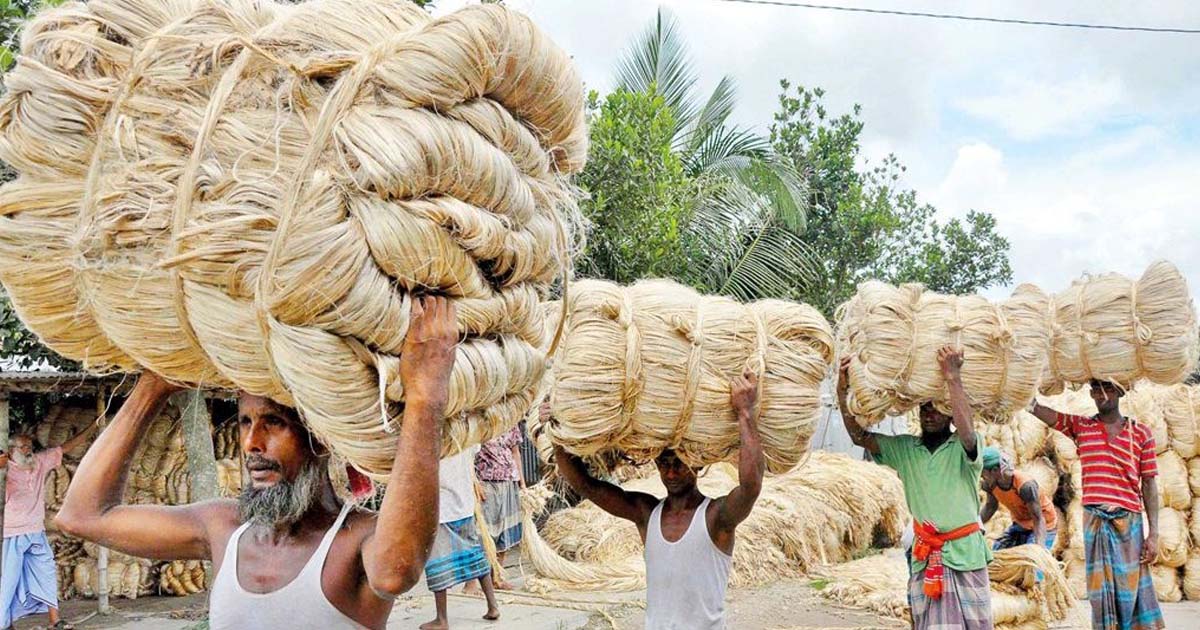The export-oriented jute sector is unable to come out of the crisis. Raw jute, jute yarn, bark-bags or jute products - all the exports are decreasing. The once major export commodity gold leaf has been going through a kind of stalemate for six years. After the closure of the government jute mills, the competition decreased, but the decline in exports could not be prevented. The Concerned are considering this situation as the cost of over-dependence on India as an export market. 60 percent of the total export of jute goods goes to India.
According to the Export Promotion Bureau (EPB) report, the export of jute and jute products during the first half of the current financial year 2023-24, from last July to December, decreased by 10.24 percent compared to the same period of the previous financial year. Revenue fell short of target by 12 percent. A total of $ 43 crore 61 lakh of jute and jute products were exported. It was $48.59 million in the same period of the previous financial year. It was $590 million in the same period of Financial Year 2021-22.
Since India imposed anti-dumping duty on Bangladesh jute imports on January 5 of 2017, so exports started to decline. Jute import tax from Bangladesh is $19 to 352 per ton. Before or after this decision, it was not possible to develop an alternative market to India anywhere else in the world. Last year, the anti-dumping period was extended for another five years. It will be effective till 2027.
According to EPB data, a total of 1 lakh 42 thousand tons of jute products were exported from Bangladesh to India in 2016, the year before anti-dumping came into effect. The next year it came down to 80 thousand tons. In the years that followed, exports continued to decline. Many factories were shut down in the face of continuous disaster. Workers are unemployed.
According to Jute Mills Association (BJMA), an organization of private jute mill owners, 68 jute mills have closed down in the last six years. The number of jute mills in the organization was 202. 132 are now in production. Two-thirds of the jute mills in operation are also closed.
When asked to know the reason for this situation of jute, BJMA Secretary General Abdul Barek Khan told to a national daily, the jute sector has suffered a disaster due to India's anti-dumping taxes.
In response to the question ‘why it was not possible to develop an alternative market in India in the last six years’, he said that in fact jute products are not getting any policy support or financial support from the government. The government announced cash assistance for the export of versatile jute products. But getting this money created new complications. Two percent VAT was levied on collection of raw jute from the market. Entrepreneurs were very happy with the announcement of jute agricultural products. Later it was found that this benefit is only for jute in the field, not for jute products. Again, jute was declared the product of the year last year. Though it was only a announcement, the jute sector is facing such a hostile situation.
Jute yarn is the largest export product of the sector. According to the EPB report, the export of the product has decreased by more than 3.14 percent in the last six months compared to the same period of the previous financial year. Exports of $26 million came down to $25 million. However, the export of raw jute decreased the most by 32 percent. Exports of raw jute fell to just $ 70 million from $110 million in the same period of last financial year. Exports of jute bark and sacks decreased 20 percent. Exports of 7 crore dollars have come down to $ 5 crore 66 lakh.
ARS




-20250710131233.jpg)


